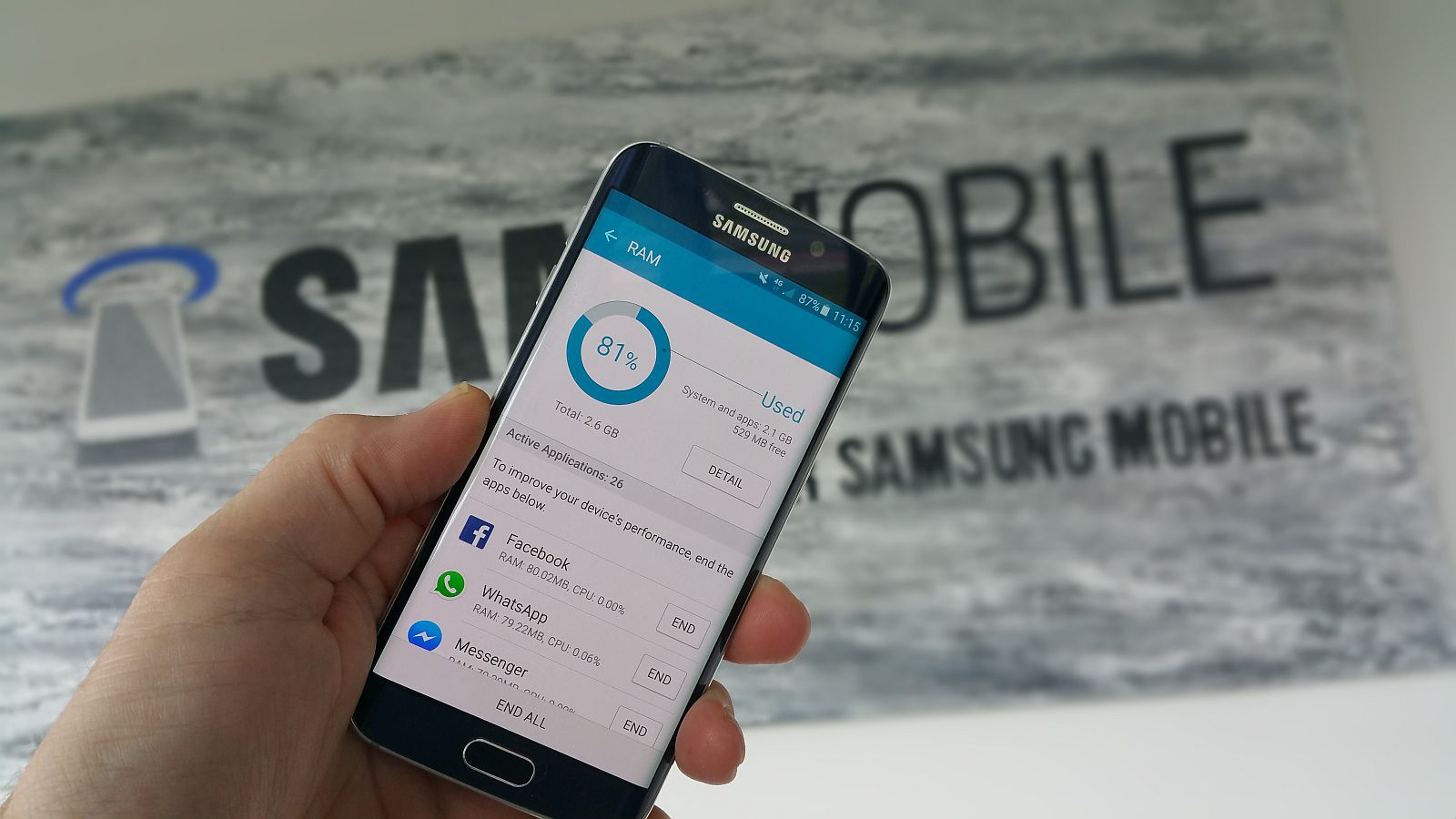For years, Samsung's smartphone software has been pretty laggy and slow, even on smartphones that cost an arm and a leg. With the Galaxy S6 and Galaxy S6 edge, Samsung finally got around to optimizing TouchWiz, its feature-packed custom Android UX. The S6 devices are fast and smooth, but as users have realized after a few weeks with either phone, the S6 and S6 edge suffer from an extreme case of background memory management.
Samsung has used some aggressive RAM management values on the latest iteration of TouchWiz, and this makes apps in the background close down within a few seconds after you switch to something else. In fact, Chrome doesn't stay loaded in memory even if you open a single app and then switch back to Chrome. The poor multitasking experience has very little to do with the memory leak problem in Lollipop, which wreaks havoc in a different manner and basically makes a device slower after a few days of use, as the OS doesn't efficiently clear memory when needed.
We have been waiting for an official fix for the RAM issue from Samsung, and our insiders believe the fix might be introduced with the Galaxy S6 edge Plus and then make its way to the regular and curvy S6. However, I've personally begun to think that the memory management on the Galaxy S6 might be deliberately set to be so extreme at killing background apps.
The reason? Probably the fact that Samsung might not have completed its work on optimizing TouchWiz to a level that would offer a good experience when there are a lot of apps open in the background. A few years of Samsung adding more and more bloat to its Android UX with each iteration without focusing on optimization at the same time means TouchWiz was in a pretty bad shape, and while the company started clearing up the core even before the Galaxy S6 and Galaxy S6 edge with the Galaxy A and Galaxy E series, it was possibly not able to get to a hundred percent before the two flagships were launched.
Of course, I'm only making a guess here, but the thing about Samsung planning to introduce the Galaxy S6 edge Plus with a more standard RAM management system does somewhat hint that it will unleash a more optimized version of its software with the larger S6. Then, maybe an update will bring the new optimizations to the Galaxy S6 and Galaxy S6 edge, but with even the Android 5.1.1 update (for the T-Mobile variants) apparently lacking any solution to the problem, I'm beginning to lose hope.
What do you think? Could the memory issue on the Galaxy S6 and Galaxy S6 edge be a deliberate thing, or do you think I'm just clutching at straws?







